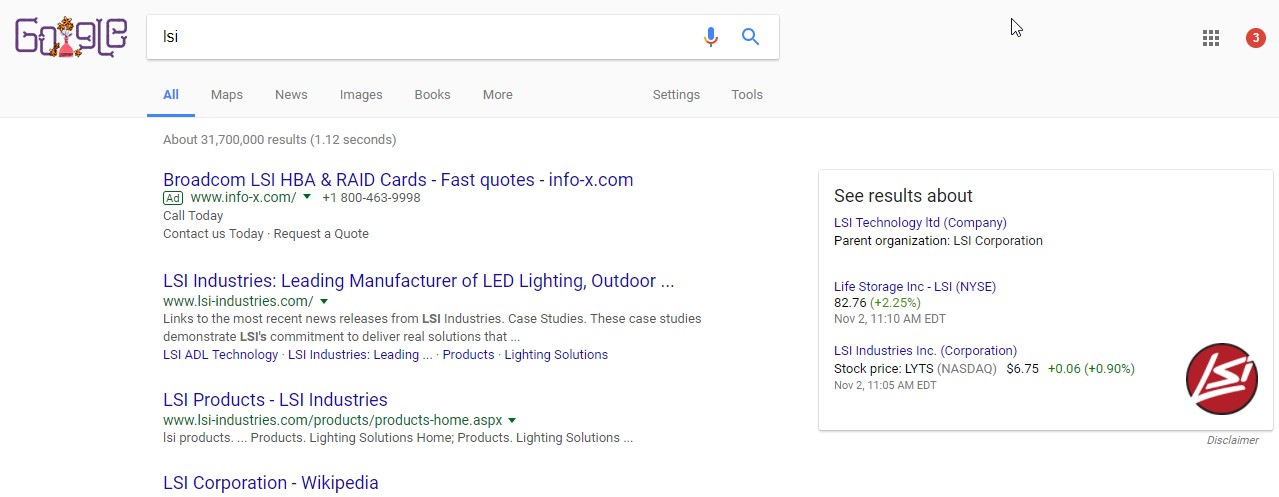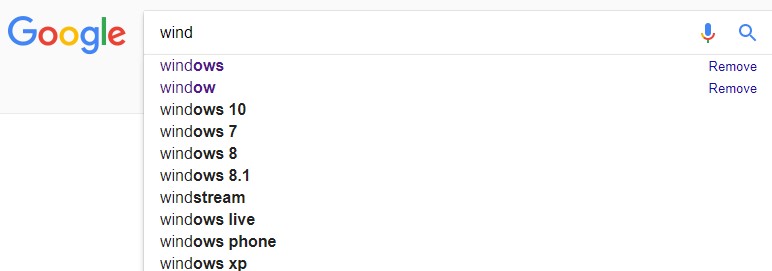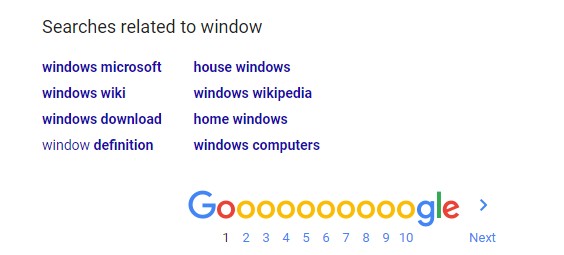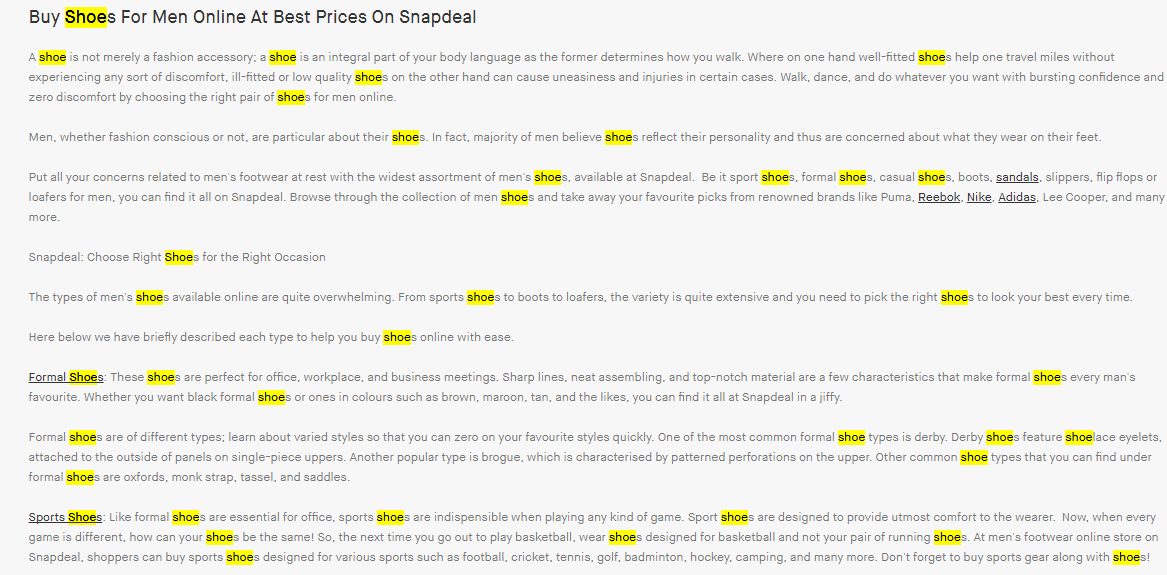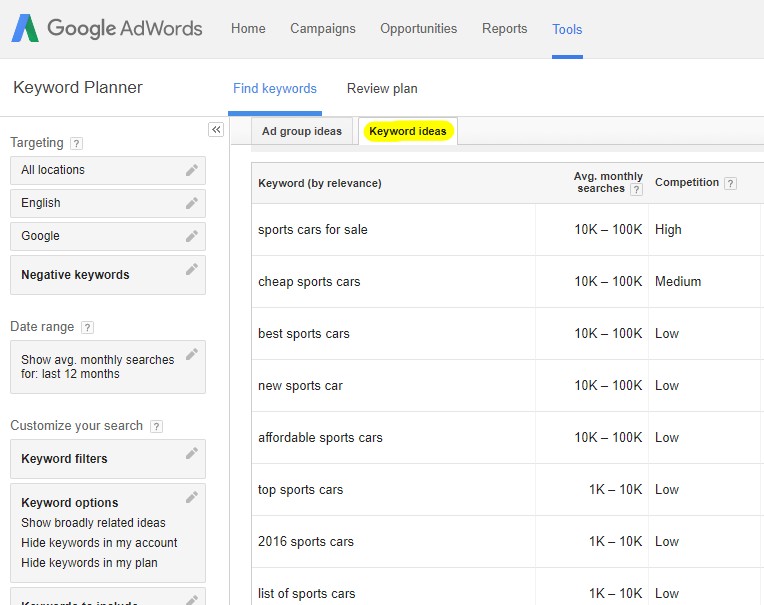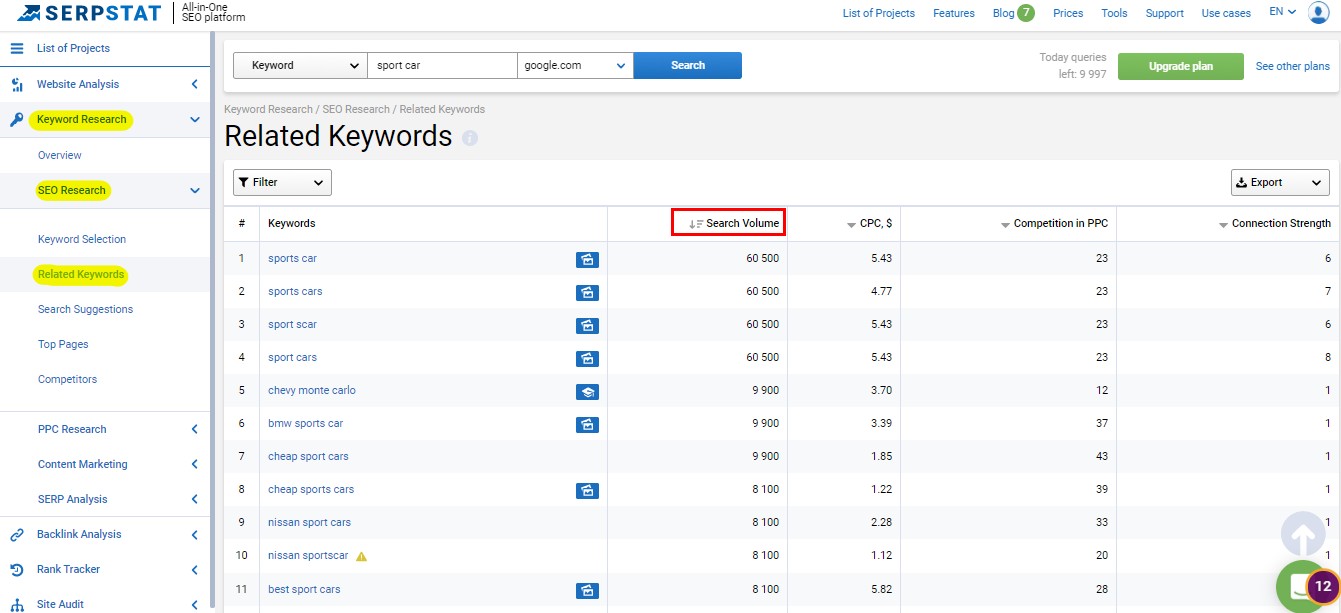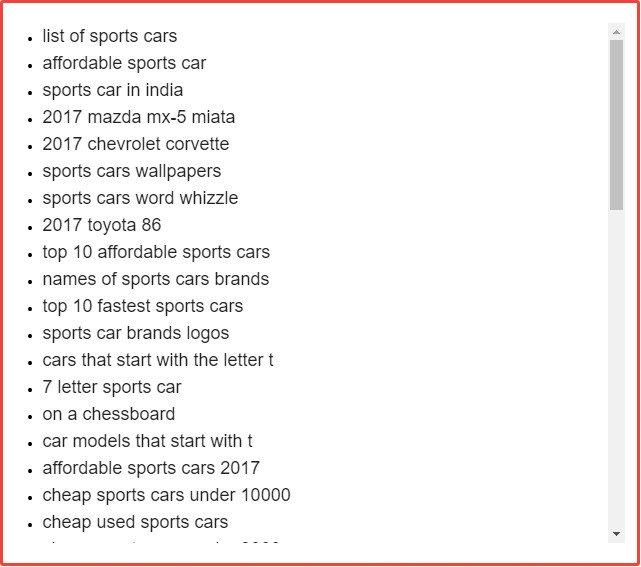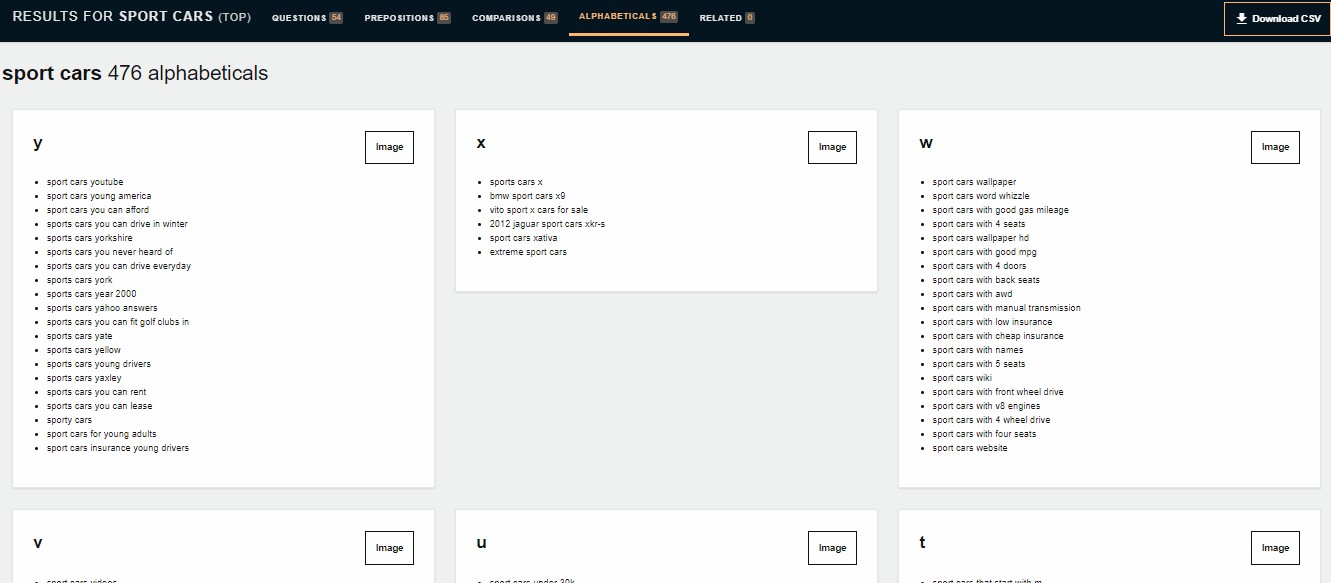The following is a guest post by Anna Rud. Anna is a Content Marketer at Serpstat. Establishing an active presence on external resources, developing rich and quality content, implementing brand strategy and many others are her key responsibilities.
Remember those days when keyword stuffing was a real SEO strategy? Well, those days are long gone so let’s be cheerful for that and forget it forever.
Since quality becomes the main value in SEO, we no longer can write articles that are laden with the same keywords and, as a result, readable for the search bots alone. Sure, the article still should contain keywords but, first and foremost, it should be interesting and readable for the real person.
So how can you optimize content for search engines without compromising quality? In this post, I’ll tell how to kill these two marketing birds with one stone named LSI (Latent Semantic Indexing.)
Before you read on - we have various resources that show you exactly how to use social networks to gain massive traffic and leads. For instance, check out the following:
FREE Step-by-Step Twitter Marketing GuideFREE Pinterest Marketing Ebook
Google algorithms 101
I mentioned that keyword stuffing no longer works. Why? You haven’t asked, but I’ll answer anyway: because of Google algorithms’ updates. What are google algorithms then? Let’s figure it all out.
Imagine the situation: you’ve typed your query “Halloween hats” into the Google search box. It returns about 37 millions of results. How does it decide what sites to return, and in what order? Who is responsible for this decision? Google algorithms.
It’s a gathering of rules that you should follow to take high positions in the SERP. These algorithms are constantly updated, and it’s always kind of talk of the town in the SEO world. Here is an algorithm change history gathered by Moz — the most comprehensive list I know. Anyway, some of these updates turned the game upside down such as Panda and Hummingbird. These two are responsible for LSI.
Google does understand you!
LSI or Latent Semantic Indexing is an indexing method which is capable of identifying patterns between the terms and concepts. Put simply, it can understand the context of the page. Google finds these patterns and understands that words that are used in the same contexts usually have similar meanings. I’ll try to explain it with the examples.
We’re typing into the Google search box some query, for instance, “windows.” It has several meanings:
- Microsoft Windows
- Film
- House windows
- Old jazz band
- And more
Other examples can be Doors — house doors, band; cars — cartoon, vehicle, band. Even if you type LSI into the Google search box, you’ll find a lot of abbreviations:
Since Google strives to show the most relevant results to the user’s query, its algorithms pay attention to the context of the page, as I said earlier. Thus, here are LSI keywords for each meaning:
- Film — film, movie, film 1980, imdb, watch, cast, characters, online, etc.
- Band — band, jazz, song, album, lyrics, youtube, drive, singer, etc.
- Microsoft Windows — Microsoft, soft, operating system, Windows 7, download, laptop, PC, etc.
- House windows — house, home, types, for sale, design, replacement, cost, etc.
It means that Google decides what results to show depending on related phrases.
Hey, before you read on - we have in various FREE in-depth guides on similar topics that you can download. For this post, check out:
FREE workbook: CREATE AWESOME BLOG POSTSFREE Beginner's Guide: START A BLOG
Thus, LSI keywords are keywords semantically related to your primary keyword. Google shows it in bold text when you’re typing your query into the search box:
Also, you’ll see a keyword suggestion at the bottom of the page:
By using relevant semantically related keywords you can tremendously improve your rankings. But the big question remains: How can you find keywords that Google considers related? Which keyword research tools will also provide you with keywords lists that you should consider for your content?
LSI vs. SEO text
There are still some texts like this on the Internet:
Some say that such a strategy simply won’t bring any results, others say that it can even harm your site rankings. But one thing that is clear to me — this text is difficult to read. SEO texts are totally ok as long as you’re not overdoing it.
 LSI texts are based on the whole subject, natural word forms, synonyms, phrases which are semantically related to the product/service/topic. They are useful to:
LSI texts are based on the whole subject, natural word forms, synonyms, phrases which are semantically related to the product/service/topic. They are useful to:
- Use more keywords without being spammy;
- Optimize your text for the google search so that it remains readable for the reader;
- Make your text as relevant as possible;
- As a result, reduce bounce rate and increase time users spend on site;
- Rank for the whole list of keywords, not only for the single one;
- Be sure you won’t get penalized using this strategy.
Tools to find it
Of course, when you’re writing a text about sports cars, you’ll probably use phrases like sport, car, road, model, speed, automobile, racing, etc. But even so, sometimes simply brainstorming keywords is not enough. We’re lucky enough to have a lot of tools that help to find a lot of LSI keywords in few clicks.
Keyword planner
Go to “Keyword ideas” at Keyword planner (Google’s own keyword research tool that you can find within Google AdWords) and check the keyword list if there is something that fits your article. You can see the average monthly searches and keyword competition. The last metric is quite important as sometimes too competitive keywords aren’t worth efforts. Mix high competitive keywords with middle and low ones.
Serpstat
The keyword tool Serpstat is an all-in-one SEO platform consists of 5 features. We’ll go with the “related keywords” module:
The Related Keywords feature returns a list of all keywords semantically related to the researched query. It means that there are at least two identical pages in top 20 search results for the researched query and its related keyword.
You can export all of the keyword suggestions to Exel or Google spreadsheets, analyze and then naturally insert some of the phrases from the keyword list into your post.
LSI Graph
This keyword tool is designed precisely to gather LSI keywords, so it’s the simplest tool with only one feature.
Just type your primary keyword into the search box and get a bunch of new keywords for your content.
This tool finds a lot of LSI keywords and searches questions. The results are sorted by prepositions, questions, comparisons, and alphabet.
It also paints exciting reports with great visualization.
What’s next?
- Headers (h1-h6) and meta tags (Title, Description);
- image names and alt-attribute;
- the text around incoming, outcoming links
- the lead paragraph and at the end of the article
- as the anchor of incoming links
- the body of the text.
Most importantly:
- being carried away by the process, do not ignore your primary keyword;
- write so that LSI keywords look naturally and try not to overdo it.
That’s it! It’s just another way to improve your content and rank higher through the simple use of related keywords. Try it, watch your search engine rankings and draw your own conclusions.
(You can find out more about keyword research for bloggers here)
There is even one more aspect to optimizing your content with related keywords: Sometimes we do not quite know for which keyword searches people will be looking when they should find our content. We can only make an (educated) guess. This guess can be based on research with the aid of keyword tools.
Using related keywords in the content will not only increase the keyword density without annoying your audience with repetitive keyword mentions. I will also give you a much bigger chance of actually using the keywords or keyword phrases and search terms your audience searches for.
You may notice in your Google search console, that some of your articles may not rank for the search terms you optimized them for. Sometimes your content may even rank for related keywords and long-tail keywords even if you never mentioned these keywords in your content.
Adding these keywords to the content can tremendously improve rankings AND click through rates!
Are you struggling with your SEO? Do you think you have done so much but somehow your blog traffic from Google search is stagnating? Do you need some help with setting up your blog for SEO? Are you not sure how to build links to your blog?
We have got you covered!
We created a free email course about SEO for your blog – or SEO with a blog. Join today for 4 days and 4 emails and learn about on-page SEO, Google Ranking factors, link building tactics and how to find keywords even you can rank for. Join our (free) email course about Blog SEO today!


